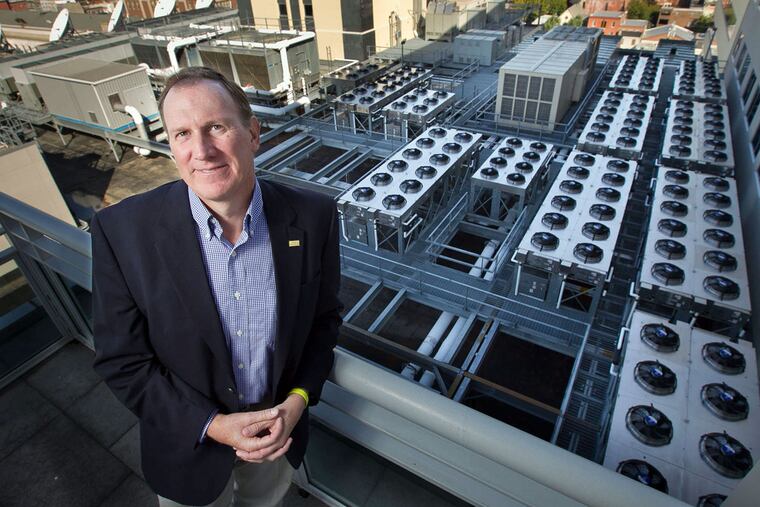Harold Yoh 3d: Engineering that doesn't lose sight of people
Walking through the halls of family-owned Day & Zimmermann's headquarters on Spring Garden Street is like walking through a history lesson, with the company's chairman and chief executive, Harold "Hal" L. Yoh 3d, 54, as the professor.

Walking through the halls of family-owned Day & Zimmermann's headquarters on Spring Garden Street is like walking through a history lesson, with the company's chairman and chief executive, Harold "Hal" L. Yoh 3d, 54, as the professor.
There's a yellowed photograph of the Gatun lock on the Panama Canal, an early assignment - 1908 - for the contract engineering, technical staffing, and construction management firm that has grown, in part, through acquisition over the decades.
In 1914, the company designed the machine that wraps the Hershey Kiss in foil, and 50 years later, in 1964, it made the New York World's Fair monorail. Day & Zimmermann, which the Yoh family bought in 1961, played a role in the 1971 construction of Veterans Stadium, razed in 2004. "It was time" for it to come down, Yoh said, not even slightly sentimental.
You're a mechanical engineer. Does that help in leading a $2.5 billion business?
I think that engineering teaches you how to look at the big picture, but also look at the details. So it's an application of the sciences in today's world. If you look around at all the infrastructure and all the stuff that's around here, there's an engineer behind it. You need the public policy side of it. You need all the other parts of it to run a society. But when you look at it, a lot of the innovation that's coming on is through engineering. Yes, I am biased.
Do you ever worry about missing the people part?
What's interesting about it is our end game is really our client's beginning game. In other words, we'll design and build something for our client, and we'll do a really good job on it. But they're building this building to have people live in it, work in it, shop in it, and all that. People don't build a plant just to look at it. They build a plant to manufacture something that they can sell out on the marketplace.
Speaking of engineering, are you good at fixing things?
I can break things and, sometimes, I can fix things.
We keep hearing about skills gaps and shortages. What are you seeing?
You're always short in some of the process areas, chemical engineering and stuff like that. And there's going to be a big engineering shortage coming up. How do we get more people involved with that? That's a big, big thing for me. How do we get women and minorities more involved in STEM [science, technology, engineering, and math]? If we are not allowing the full breadth of STEM or encouraging everybody who likes it and enjoys it and wants to get in there at an early age, shame on us and shame on us as a country.
You can't noodle around long on your website before you encounter your company's safety video. There's lots of talk about safety, but I have to admit, I'm cynical about whether companies really mean it.
We had a client years ago when we were in commercial security who wanted our guards to be down helping move trucks into a truck dock [standing] between the truck and dock.
What did you say?
We said no, and actually we gave them notice and lost the business. I know of any accident that [causes] lost time within 24 hours.
You do work maintaining nuclear power plants around the country, including Hope Creek, run by the Public Service Enterprise Group.
For our nuclear power plant business, we need to find probably - every spring and fall - anywhere between 10 [thousand] and 20,000 people.
Wow, on a temporary basis? How do you do it?
You've just got to be really good at it. There is a labor shortage in certain areas in construction, because construction took a big hit in the downturn. And the kids nowadays love technology. What's interesting in construction - you've got to understand the technology now because everybody is running around with iPads [on the job site]. Even running the equipment nowadays, you've got to understand math.
You work with a lot of unions. How is it?
Great. Our company wouldn't exist without them. I think that [being] successful is a partnership. How does anything work in today's world? It's a partnership.
Interview questions and answers have been edited for space.
215-854-2769
@JaneVonBergen